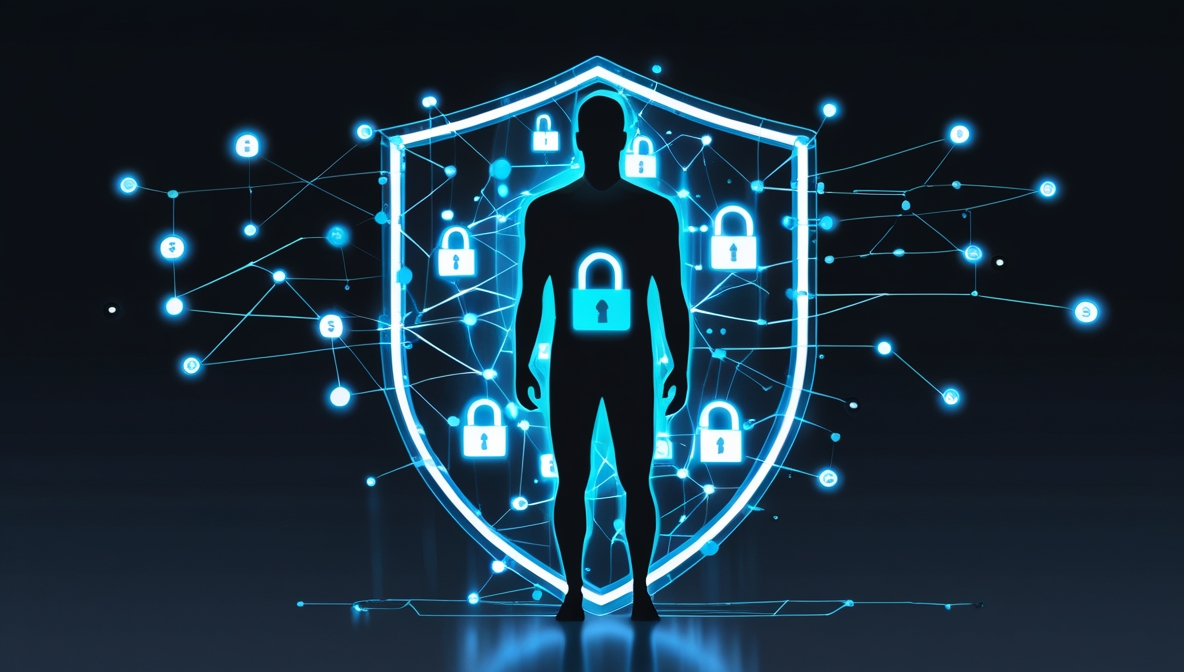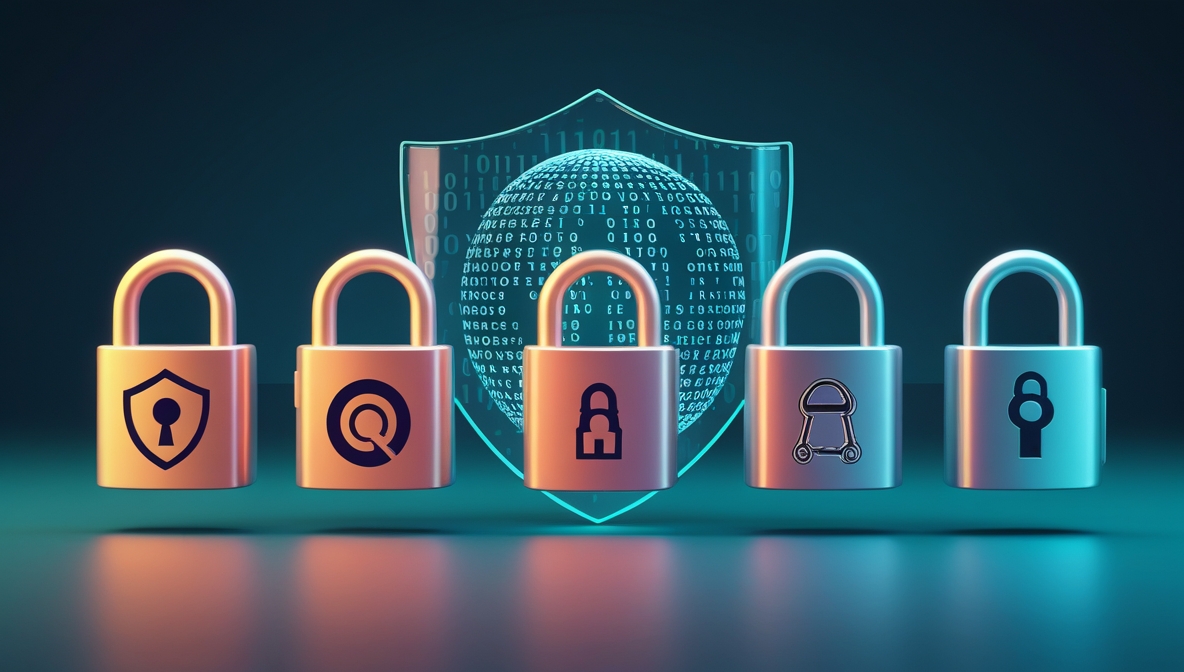Understanding the Identity Crisis in the Digital Era
In an increasingly digital world, identity protection has become a cornerstone of cybersecurity. With data breaches compromising millions of records annually, traditional systems of identity verification are proving inadequate. From financial institutions to social platforms, personal data is at constant risk of being misused or stolen. The evolving nature of cyber threats demands a transformative approach, and blockchain technology is emerging as a powerful solution.
What Is Blockchain and Why It Matters for Identity Security
Blockchain is a decentralized digital ledger that records transactions across a network of computers. Unlike centralized systems, blockchain data is immutable, transparent, and secure by design. Each block in the chain contains data that is cryptographically secured and linked to the previous block, creating an unbreakable chain of trust.
This decentralized architecture eliminates the need for central authorities, making it nearly impossible for hackers to alter or corrupt the data. These characteristics make blockchain particularly suited for identity protection.
Decentralization: The Cornerstone of Secure Identity
In traditional systems, personal information is stored in centralized databases controlled by corporations or governments. These are lucrative targets for cybercriminals. A single breach can expose thousands or even millions of identities. Blockchain decentralizes data storage, distributing it across a wide network of nodes.
This decentralized identity (DID) model ensures that no single point of failure exists. Users retain control of their personal information, deciding when and with whom to share their data. Blockchain-based DIDs shift the paradigm from third-party-controlled identities to user-owned identities, enhancing privacy and reducing the attack surface.
Immutable Records and Fraud Prevention
Blockchain’s immutability ensures that once information is recorded, it cannot be changed or deleted. This feature is vital for maintaining the integrity of identity documents. Whether it's a birth certificate, passport, or academic degree, storing credentials on the blockchain guarantees their authenticity.
This prevents identity fraud, as malicious actors cannot alter or forge blockchain-verified documents. Government agencies and private institutions can verify credentials instantly, without relying on potentially compromised third parties.
Self-Sovereign Identity (SSI): Empowering the Individual
One of the most impactful innovations enabled by blockchain is Self-Sovereign Identity (SSI). SSI gives individuals complete ownership of their digital identities. With SSI, users store their credentials in encrypted digital wallets, accessible only by private keys.
When identity verification is needed, the user can present a zero-knowledge proof — a way to confirm information without revealing the data itself. For instance, proving you’re over 18 without disclosing your birthdate.
SSI frameworks are gaining momentum worldwide, supported by standards such as the W3C Decentralized Identifiers (DID) and Verifiable Credentials (VC). These frameworks offer seamless interoperability, allowing users to maintain one identity across platforms and borders.
Blockchain Use Cases in Identity Protection
1. Government ID Systems
Governments are increasingly exploring blockchain for national identity programs. For example, Estonia’s e-Residency and India’s Aadhaar have inspired blockchain-backed systems that offer secure, tamper-proof digital identities. These programs enhance transparency, reduce bureaucracy, and eliminate fraud.
2. Financial Services and KYC
Know Your Customer (KYC) processes in banking are costly, time-consuming, and privacy-invading. Blockchain enables KYC-sharing platforms, where users can submit verified credentials once and reuse them across multiple institutions. This reduces friction, improves compliance, and lowers the risk of identity theft.
3. Healthcare Data Security
In healthcare, patient records are sensitive and fragmented. Blockchain allows for interoperable and secure health identity systems. Patients control their health data and can grant temporary access to providers. This ensures data integrity while safeguarding privacy.
4. Education and Professional Credentials
Fake degrees and resumes are rampant. Blockchain can store verifiable academic records, transcripts, and professional certificates. Employers and institutions can instantly verify credentials, eliminating document fraud and enhancing trust in the recruitment process.
5. Voting and Digital Citizenship
Digital voting is susceptible to tampering and mistrust. Blockchain ensures secure, transparent, and auditable voting systems. Voter identities can be cryptographically authenticated, and every vote can be tracked without compromising anonymity. This fosters democratic integrity and civic trust.
Interoperability and Scalability Challenges
While blockchain offers numerous benefits for identity protection, challenges remain. Interoperability between different blockchain platforms is essential for global adoption. Standardizing protocols across borders and industries is an ongoing effort.
Moreover, scalability is a concern. Public blockchains like Ethereum have limited transaction throughput, which can delay identity verifications during peak usage. Layer 2 solutions and private-permissioned chains are emerging to address these concerns.
Privacy vs. Transparency: Striking the Balance
Blockchain’s transparency must be carefully balanced with privacy. While transaction data on public blockchains is visible, identity systems often use private or permissioned blockchains and zero-knowledge proofs to keep personal information confidential. Privacy-enhancing technologies (PETs) are crucial to ensure regulatory compliance with laws like GDPR and CCPA.
Regulatory and Legal Considerations
Adopting blockchain for identity protection requires alignment with legal frameworks and data protection laws. Governments and regulators must update policies to accommodate decentralized systems. Certification bodies and compliance standards are needed to validate blockchain identity solutions and ensure consumer trust.
Future of Identity Protection with Blockchain
The fusion of blockchain with other emerging technologies such as biometrics, artificial intelligence (AI), and IoT will redefine the future of identity management. AI can enhance anomaly detection, while biometrics provide additional layers of authentication. IoT devices with embedded blockchain identities will create a secure and interconnected ecosystem.
As digital transformation accelerates, blockchain’s role in creating a secure, user-centric identity infrastructure will become indispensable. Industries and governments that embrace these innovations will lead in security, efficiency, and trust.
Conclusion: A New Era of Digital Identity
Blockchain is not just a technological upgrade — it's a fundamental shift in how we manage and protect identity. From self-sovereignty to fraud-proof documentation, blockchain empowers individuals while reducing systemic vulnerabilities. Its decentralized, immutable, and transparent nature positions it as the foundation for next-generation identity protection.
For businesses, governments, and individuals alike, the message is clear: Blockchain is the future of identity security — and the future is already here.




